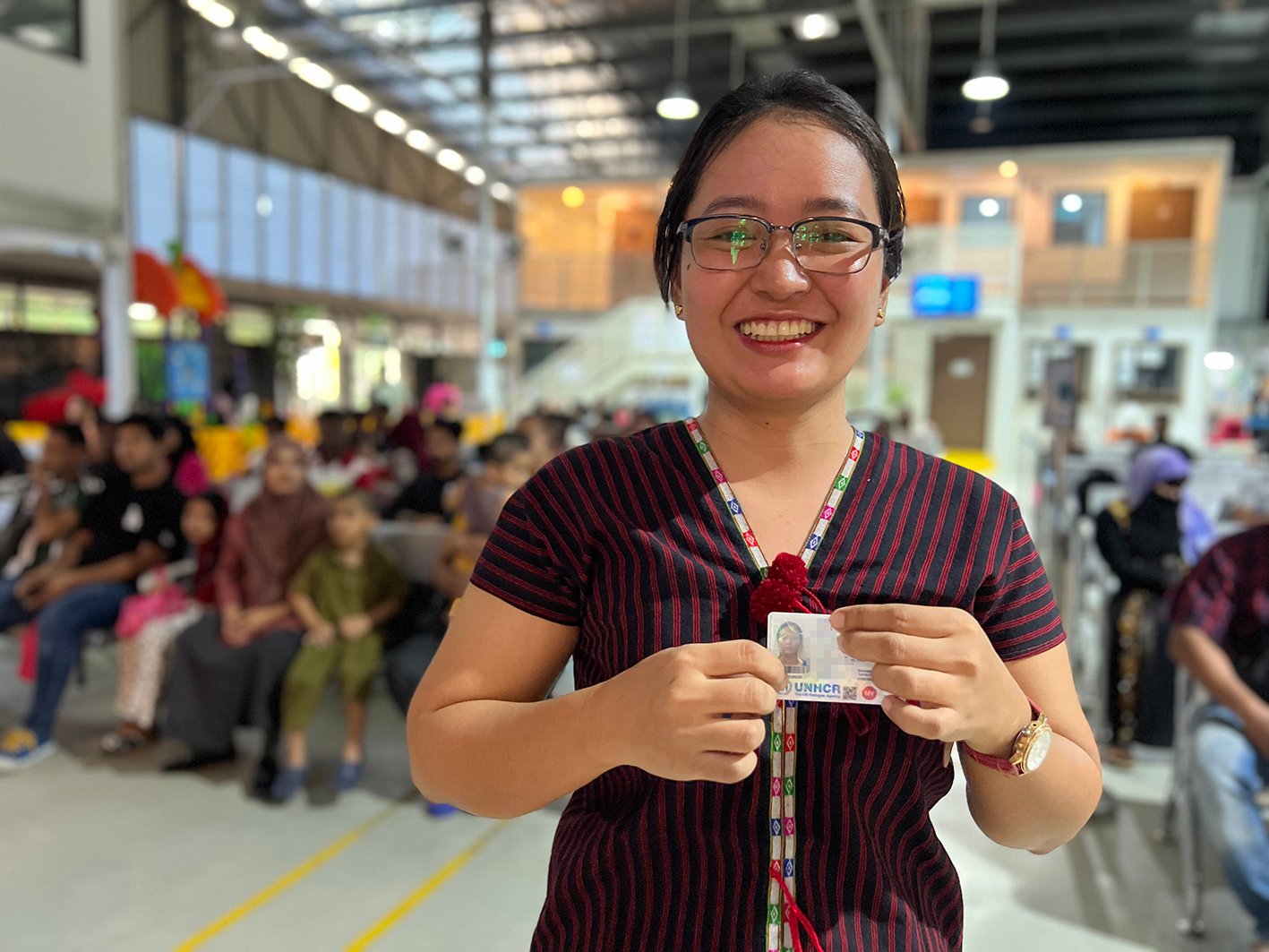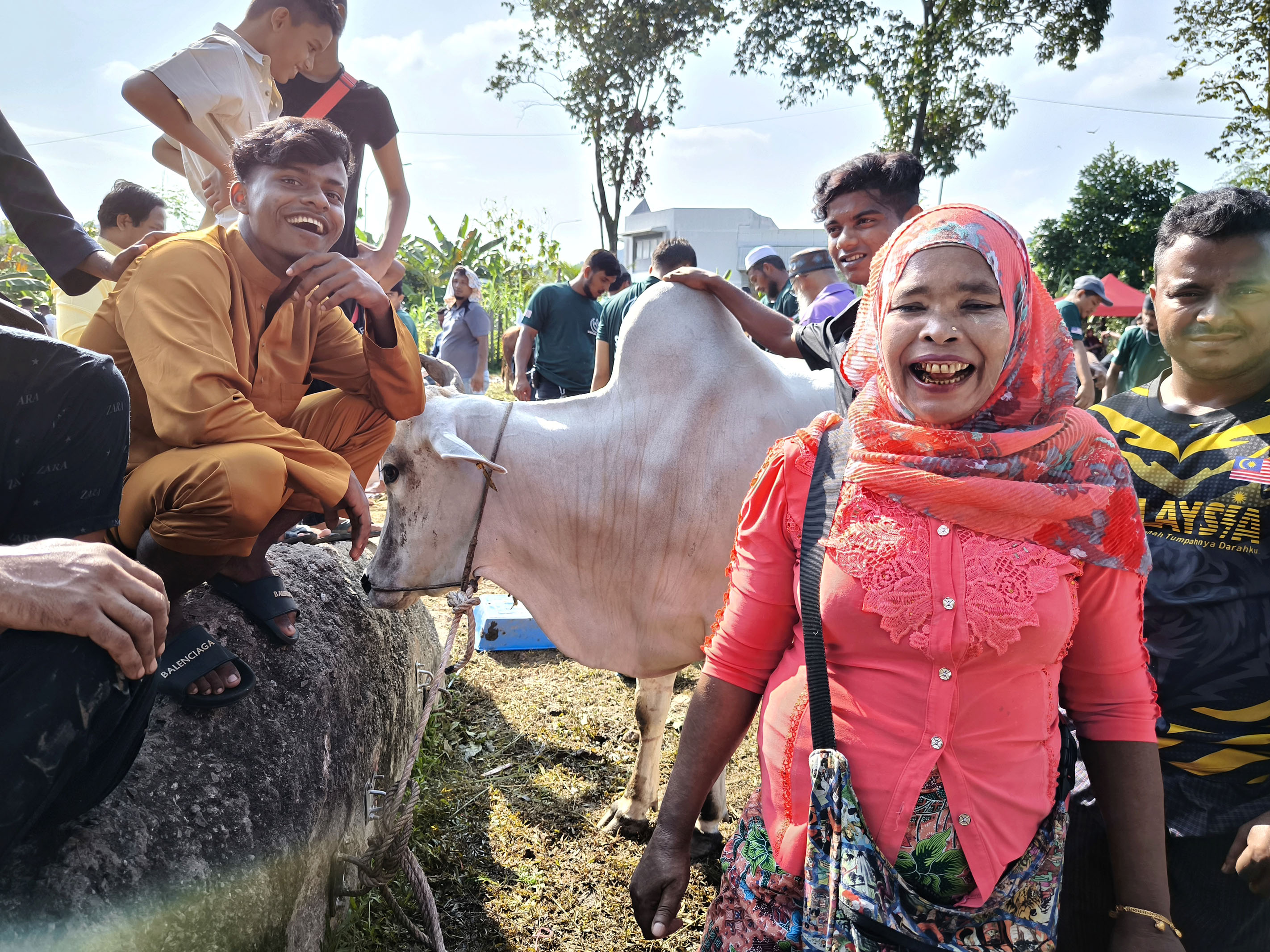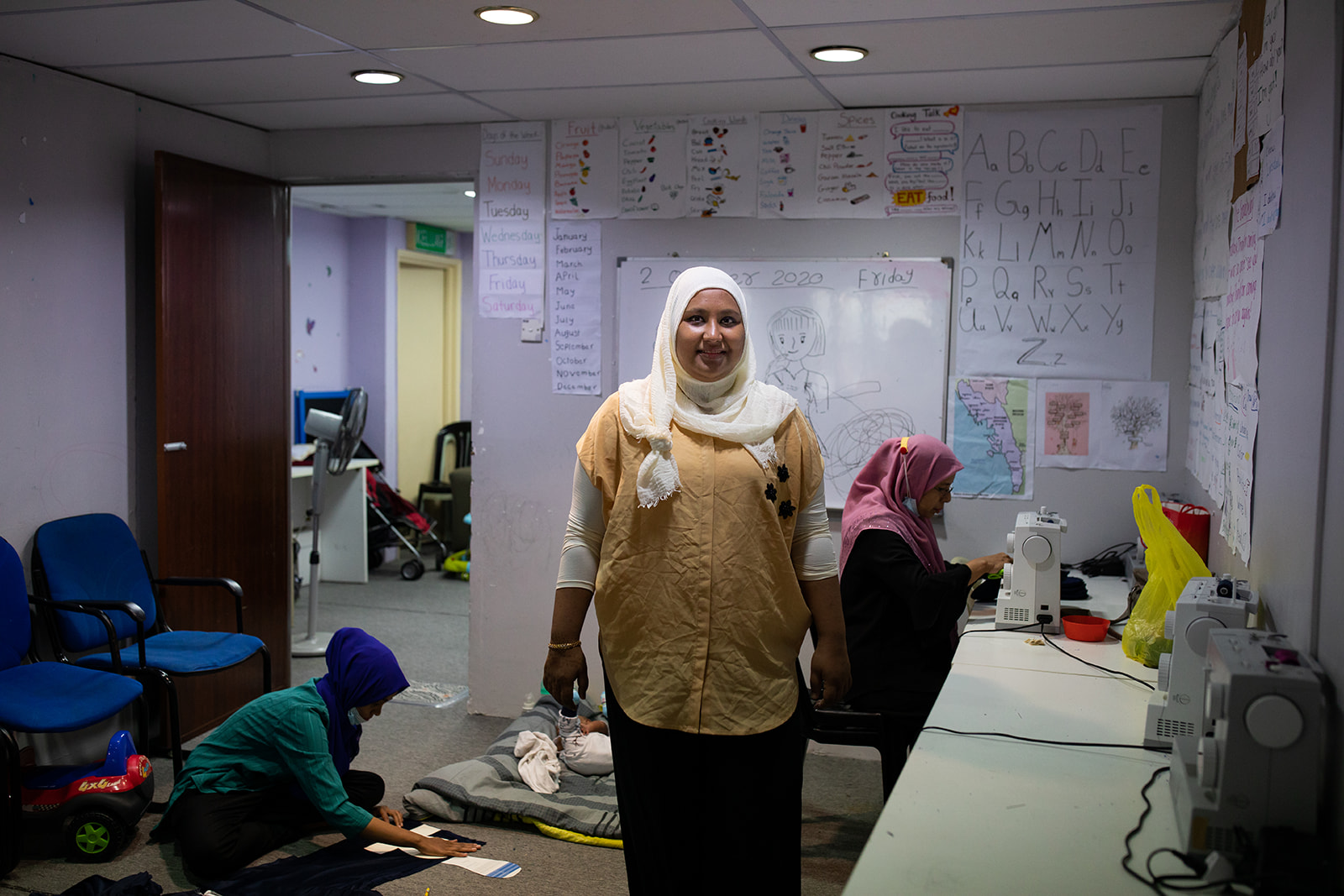Education matters: Refugee youths dream of better lives through school
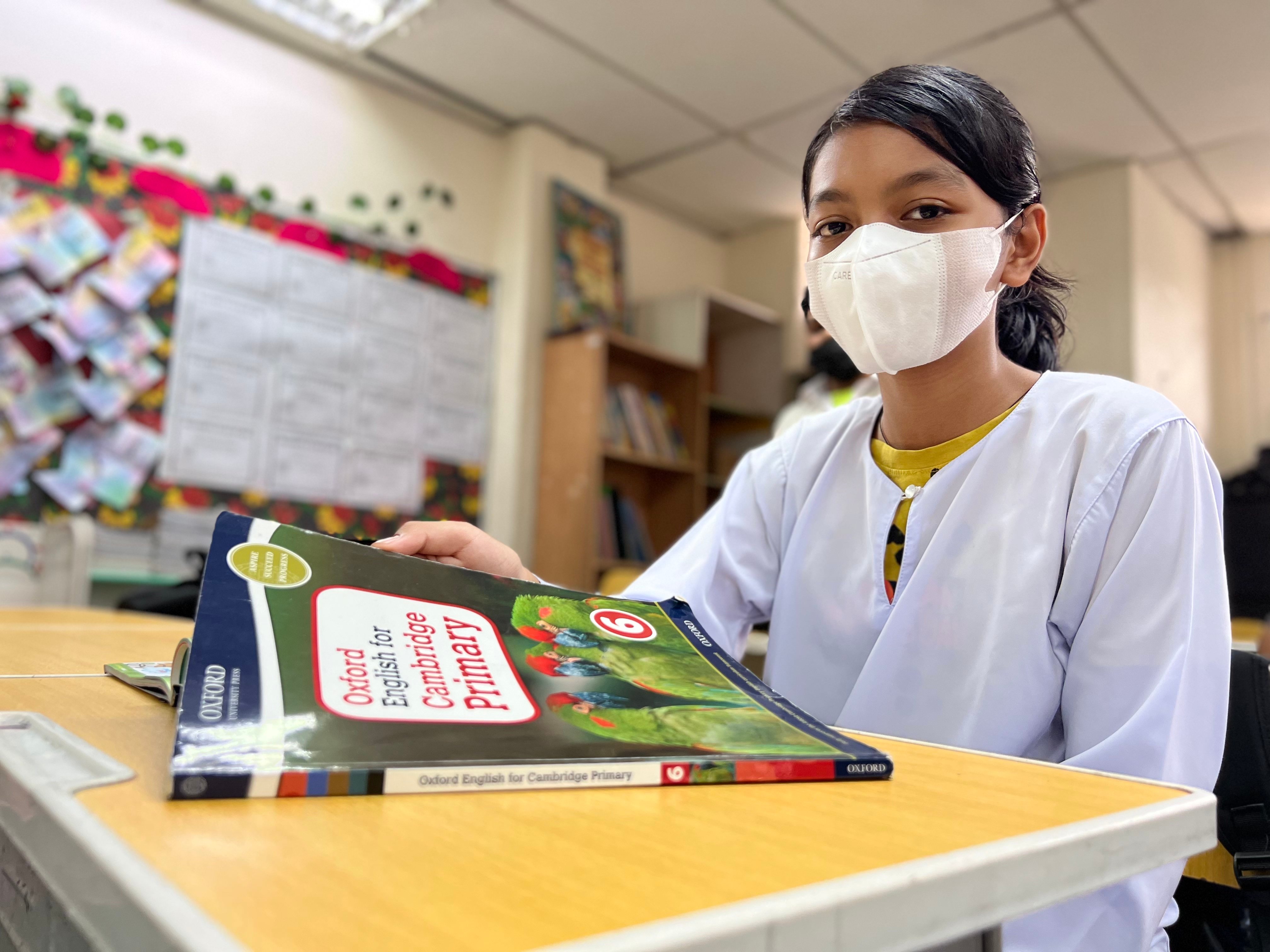
Education matters: Refugee youths dream of better lives through school
Azizah is a 13-year-old refugee student from Myanmar. She feels lucky that her parents prioritize her education, and her dream is to one day become an engineer.
At first glance, Azizah and Nawaz are like any other teenager in school - anxious about exams, and hopeful over the possibilities that education could bring for their future.
However, unlike most other teenagers, 13 year-old Azizah and 15 year-old Nawaz are refugees whose families fled persecution and complex human rights abuses in their own countries.
They attend the Buddhist Tzu Chi Learning Centre, an informal learning centre in Kuala Lumpur. It is run by the Buddhist Tzu Chi Foundation (TCF), an NGO partner of the UN Refugee Agency, UNHCR.
The two friends are in Primary Six. Azizah, who is a Rohingya refugee from Myanmar, speaks passionately about her plans to achieve her ambitions.
“I want to be an engineer when I grow up. Many girls my age have no choice but to stay at home and care for their younger siblings and help manage the household, but my father insists that I study to the highest level possible,” she said.
For Pakistani refugee Nawaz, his aspirations lie in the skies.
“I want to be a pilot when I grow up, and having good education is a way to achieve that,” he said.
Due to displacement, Nawaz missed several years of schooling when he was younger.
“I was only able to attend school when I was ten years old. Before that, my father had to teach me. My father emphasized that education is very important, and I agree. I had to study very hard to catch up with my peers, but I’m glad that I made it to primary six now.”
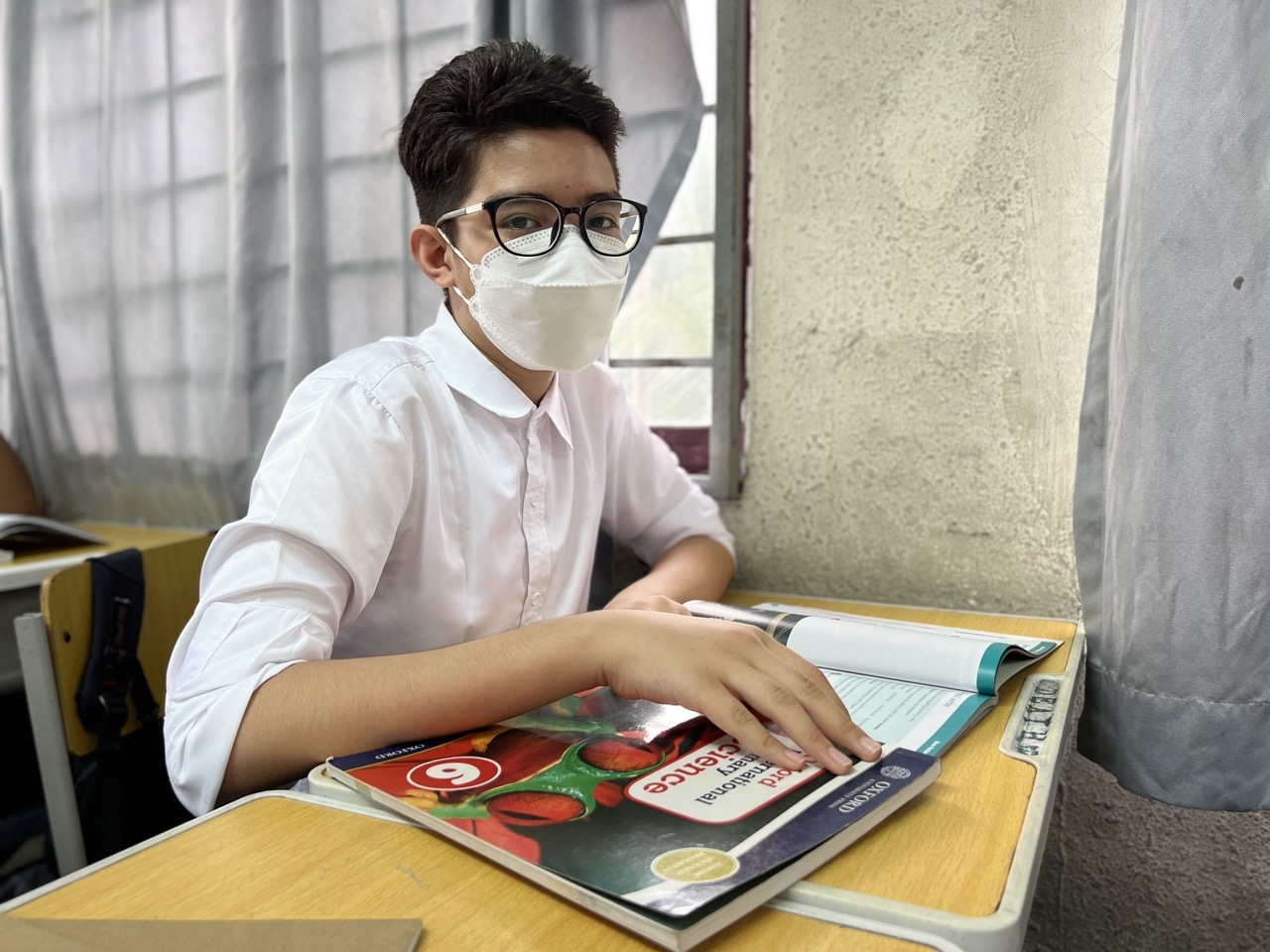
Nawaz is a 14-year-old refugee student from Pakistan. He aspires to be a pilot when he grows up.
Their challenges in obtaining education are unfortunately too familiar for many refugee children. Child refugees frequently have their education disrupted as they are uprooted from home and then have to find their way with their families in the country that shelters them – although the reception they receive varies.
In a country like Malaysia, where refugees have no legal status, the situation is complex. Currently, there are some 185,760 refugees registered with UNHCR in Malaysia. Refugee children have no access to the national education system, compelling UNHCR, its NGO partners, and refugee communities themselves to support a parallel system of education.
There are some 150 community learning centres for refugees throughout Malaysia, many of which struggle with limited funding and overcrowded classrooms with few resources. Other challenges include a high turnover of teachers, students who drop out for financial or cultural reasons, and limited opportunities for higher education.
UNHCR works with NGOs and communities to strengthen the access, quality and sustainability of informal education for young refugees and asylum-seekers in Malaysia.
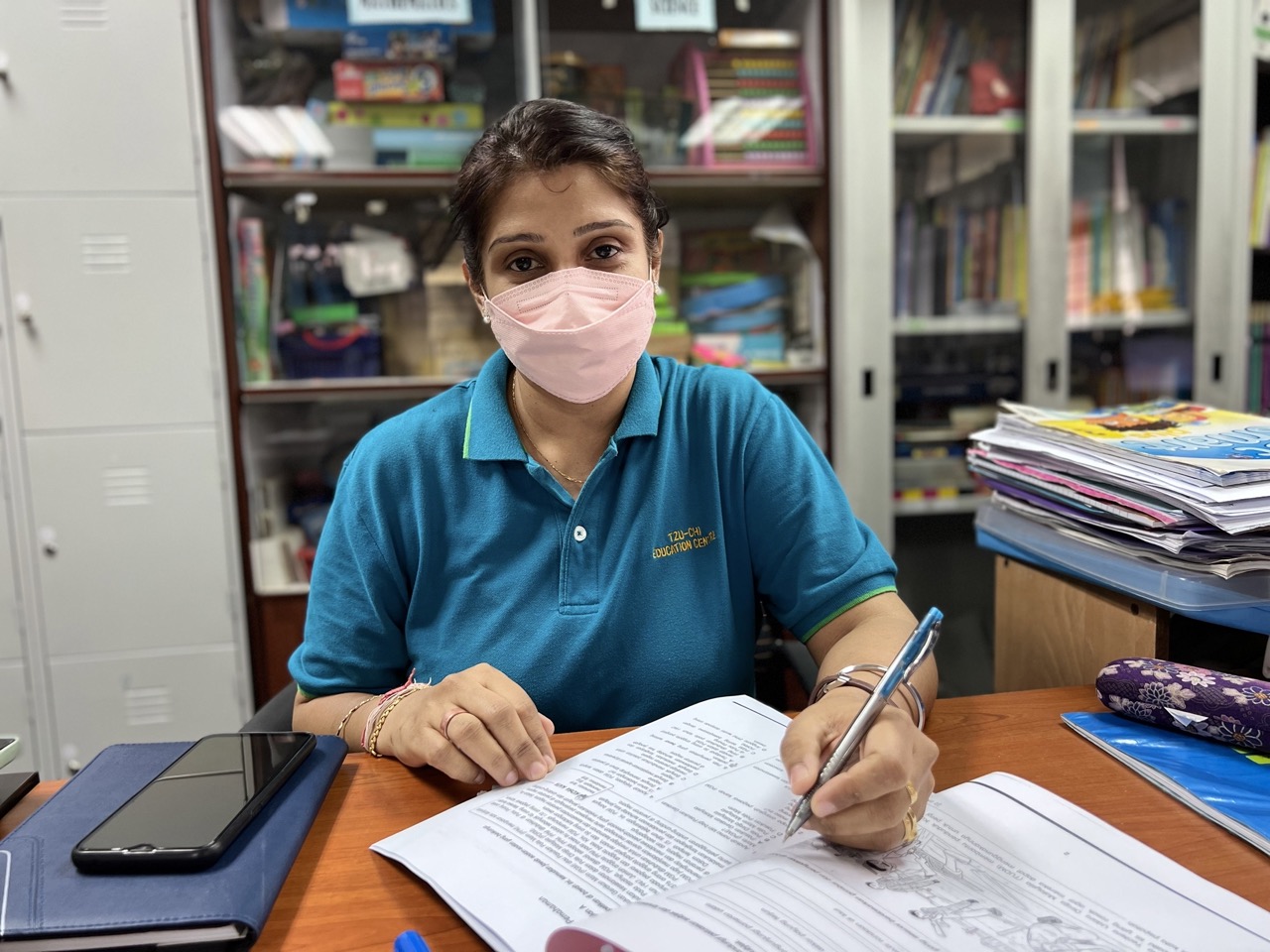
Teacher Leena Muthusamy, 45 years old, is passionate about empowering young refugees on the importance of education.
Leena Muthusamy is a teacher at the Buddhist Tzu Chi Learning Centre. She said, “Many of our students come from various backgrounds and suffer from the trauma and hardship of coming from refugee and displaced families. It is important for them to consistently attend school as we also act as their support system when things are hard at home. Education is a chance for refugee children to change their own destiny.”
Her colleague Ng Shyu Jinn has been a teacher at the Buddhist Tzu Chi Learning Centre for the last seven years, and is equally certain of the impact of education in the lives of refugee children.
“It is my wish for my students to always have access to education as it is important for their future and lives of others around them,” said Ng.
“The support that is provided by UNHCR and donors enable my students to get access to good learning materials, and qualified, trained teachers for quality education.”
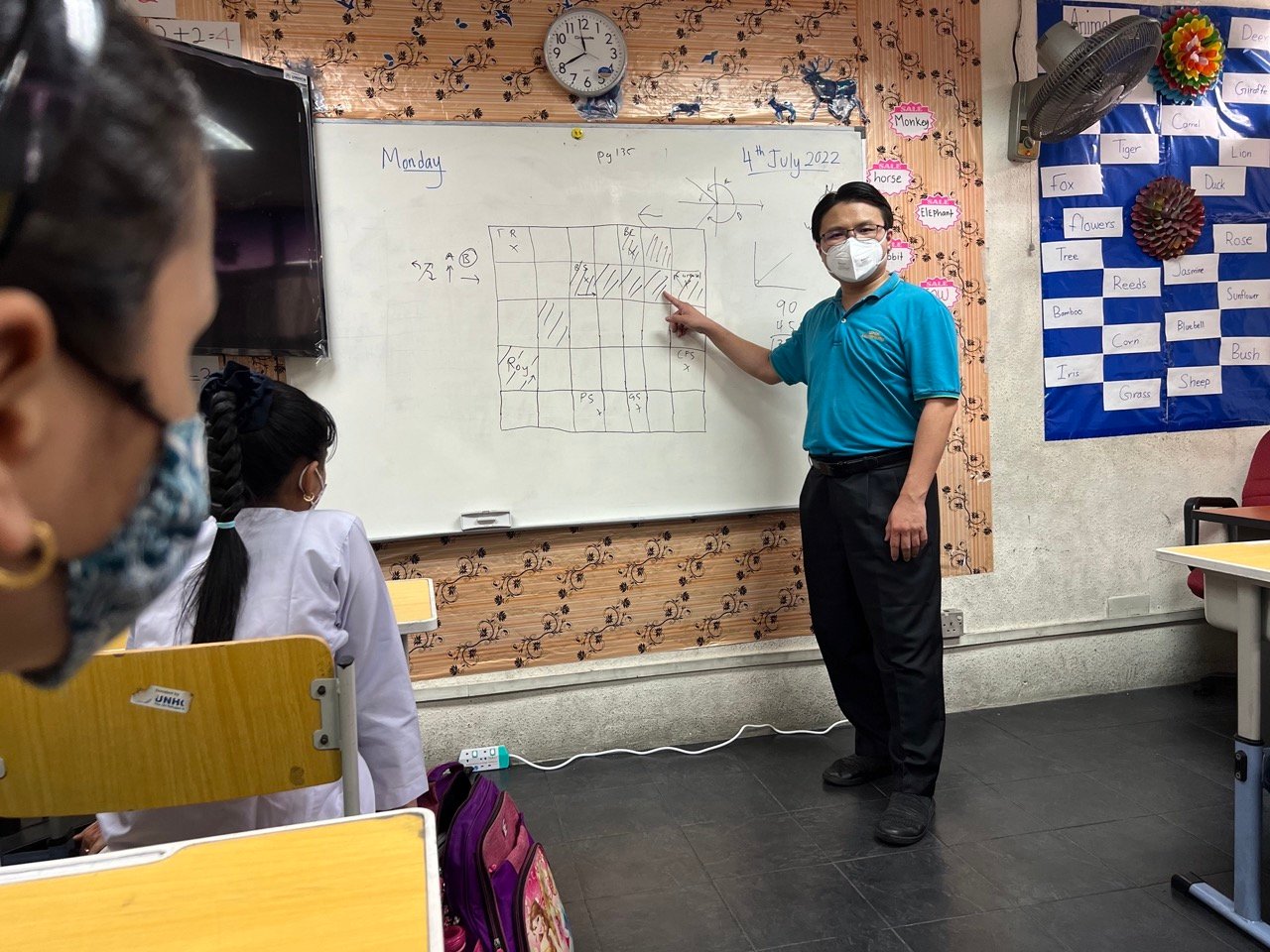
Teacher Ng Shyue Jinn, 35 years old, teaches Maths and Science to refugee students at Buddhist Tzu Chi Learning Centre.
Thanks to these learning centres, refugee youths like Azizah and Nawaz have a real shot at breaking the cycle of displacement and poverty – options few young refugees have.
Azizah feels lucky that her family prioritizes her education so that she can secure a better future for herself.
“I will always be grateful for this opportunity to study and stay in school. I will never take this for granted,” Azizah added.





